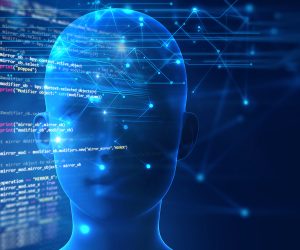Artificial Intelligence And Its Impact On Legal Technology (Part II)
Should lawyers should be concerned about whether AI will replace lawyers?
 Artificial intelligence (AI) is quickly coming into its own in terms of use by the legal industry. We are on the cusp of a revolution in the legal profession led by the adoption of AI throughout the legal industry, but in particular by in-house lawyers. Much like how email changed the way we do business every day, AI will become ubiquitous — an indispensable assistant to practically every lawyer. But what is the future of AI in the legal industry? A bigger question is whether AI will actually replace lawyers as seems to be implicated above (a scary thought if you are new to the profession vs. an old-timer like me). And if so, are there ethical or moral dilemmas that should be considered regarding AI and the legal industry? When considering the future of AI in the industry, a few things are for sure. First, those who do not adopt and embrace the change will get left behind in some manner and second, those who do embrace AI will ultimately find themselves freed up to do the two things there always seems to be too little time for: thinking and advising. Welcome to the second of a four-part series on AI; this article discusses whether lawyers should be concerned about whether AI will replace lawyers.
Artificial intelligence (AI) is quickly coming into its own in terms of use by the legal industry. We are on the cusp of a revolution in the legal profession led by the adoption of AI throughout the legal industry, but in particular by in-house lawyers. Much like how email changed the way we do business every day, AI will become ubiquitous — an indispensable assistant to practically every lawyer. But what is the future of AI in the legal industry? A bigger question is whether AI will actually replace lawyers as seems to be implicated above (a scary thought if you are new to the profession vs. an old-timer like me). And if so, are there ethical or moral dilemmas that should be considered regarding AI and the legal industry? When considering the future of AI in the industry, a few things are for sure. First, those who do not adopt and embrace the change will get left behind in some manner and second, those who do embrace AI will ultimately find themselves freed up to do the two things there always seems to be too little time for: thinking and advising. Welcome to the second of a four-part series on AI; this article discusses whether lawyers should be concerned about whether AI will replace lawyers.
Robot Lawyer Army?
In the first installment of this series, I wrote about what AI is, how it works, and its general impact on the legal industry and legal technology. In this article, I will tackle the question of whether AI will replace lawyers.
I am sorry to disappoint anyone who had visions of unleashing a horde of mechanical robot lawyers to lay waste to their enemies via a mindless rampage of bone-chilling logic and robo-litigation. That isn’t happening, but it does paint a pretty cool picture of the robot lawyer army I’ve always wanted. Instead, what most likely to happen are three things.
1) Some legal jobs will be eliminated, e.g., those which involve the sole task of searching documents or other databases for information and coding that information are most at risk.
2) Jobs will be created, including managing and developing AI (legal engineers), writing algorithms for AI, and reviewing AI-assisted work product (because lawyers can never concede the final say or the provision of legal advice to AI).
3) Most lawyers will be freed from the mundane task of data gathering for the value-added task of analyzing results, thinking, and advising their clients. These are roles that will always require the human touch. AI will just be a tool to help lawyers do all of this better, faster and more cost effectively.
For more about the future of AI for in-house counsel, see the full version of this article. Or visit the larger Legal Department 2025 Resource Center from Thomson Reuters.
Sterling Miller spent over 20 years as in-house counsel, including being general counsel for Sabre Corporation and Travelocity. He currently serves as Senior Counsel for Hilgers Graben PLLC focusing on litigation, contracts, data privacy, compliance, and consulting with in-house legal departments. He is CIPP/US certified in data privacy.







